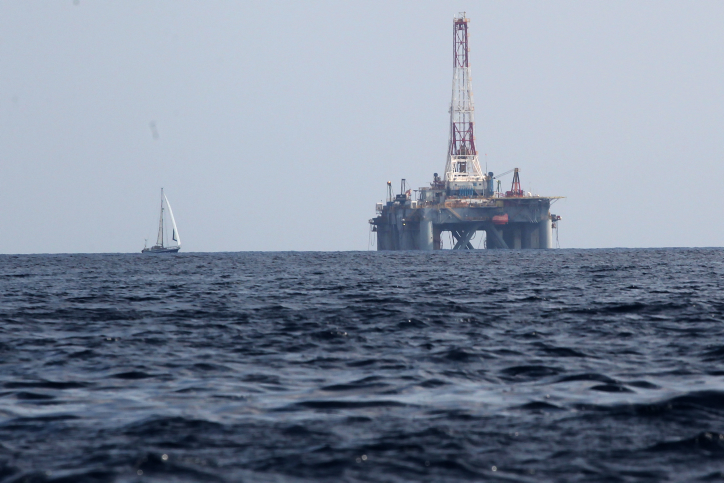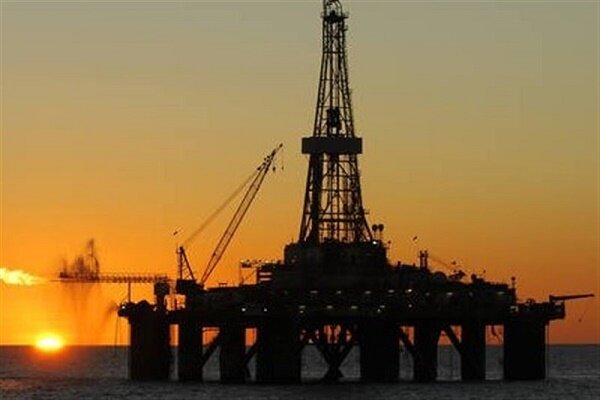Defiance in the Desert: Saudi Arabia and Kuwait Refuse Iran’s Claims to Gas Field

Defiance in the Desert: Saudi Arabia and Kuwait Refuse Iran’s Claims to Gas Field
In a recent geopolitical showdown that has sent ripples across the Middle East, Saudi Arabia and Kuwait have firmly rejected Iran’s audacious claims to a gas field nestled beneath the waters of the Arabian Gulf. The disputed territory, known as the Arash field, has become the focal point of tensions in the region, igniting a fresh wave of territorial disputes and straining diplomatic relations among these oil-rich nations.
At the heart of the dispute lies the ownership rights to the vast natural gas reserves concealed beneath the seabed of the Arabian Gulf. Iran has taken an assertive stance, insisting that the Arash field falls within its territorial waters and thus, rightfully belongs to the Islamic Republic. However, both Saudi Arabia and Kuwait have vehemently refuted these claims, asserting historical usage and international law to uphold their own stake in the contested area.

The standoff has brought to the forefront long-standing rivalries and historical grievances between these neighboring countries. Beneath the surface of this gas field conflict lies a complex web of historical, religious, and cultural factors that have shaped the region’s dynamics for centuries.
Saudi Arabia, a powerful regional player, has voiced its position through its state-owned oil company, Saudi Aramco, which has invested heavily in exploring and exploiting the energy resources in the disputed waters. The Kingdom asserts that it holds indisputable evidence of its territorial rights dating back to ancient times when trade routes and maritime boundaries were established.
Kuwait, too, has a compelling case to make, hinging on its geographical proximity to the Arash field. The small but influential nation has mobilized diplomatic channels and engaged in multilateral talks to reinforce its claim, emphasizing its sovereignty over the northern portion of the field.

As the world watches this intensifying standoff, global powers have been drawn into the fray, cautiously weighing in on the matter. The United States, a staunch ally of Saudi Arabia, has expressed concerns over Iran’s increasing assertiveness in the region, highlighting the potential impact on energy markets and regional stability.
The European Union, too, has called for restraint and dialogue, urging all parties to find a peaceful resolution through diplomatic means. Concerns over possible disruptions to energy supplies have spurred international efforts to mediate between the disputing nations.
While the conflict primarily revolves around energy resources, its implications extend far beyond economic interests. The Arash field dispute reflects broader geopolitical rivalries and exacerbates existing tensions between Sunni-majority Saudi Arabia and Shia-majority Iran. The two regional powerhouses have been engaged in proxy conflicts across the Middle East, further complicating the efforts to find a resolution.

As the situation unfolds, the international community remains wary of the potential ramifications of an escalation in hostilities. A military confrontation could have disastrous consequences for the global economy and security, as it may disrupt energy supplies, cause financial instability, and exacerbate already fragile political landscapes in the region.
The Arash field dispute underscores the need for diplomatic finesse and collaborative efforts to resolve territorial conflicts. History has shown that energy-rich regions can become flashpoints for violence and instability, as competing interests vie for control. In this case, finding a peaceful solution is crucial not only for the nations directly involved but also for the broader stability of the Middle East.
In conclusion, the defiance displayed by Saudi Arabia and Kuwait in rejecting Iran’s claims to the Arash gas field represents a complex web of historical, geopolitical, and energy-related factors. As the nations stand firm in asserting their territorial rights, the international community is closely monitoring the situation, urging for dialogue and peaceful resolution to prevent further escalation. The dispute serves as a stark reminder of the delicate balance required in managing energy resources and territorial claims, with the hopes that diplomatic efforts will ultimately prevail in bringing about a peaceful resolution to the conflict.
As diplomatic efforts continue in the quest for a resolution, the Arash field dispute has also brought into focus the delicate interplay between regional alliances and international interests. Countries with ties to both Iran and the Gulf Cooperation Council (GCC) states find themselves in a delicate balancing act, trying to navigate the intricacies of maintaining relationships while advocating for peaceful negotiations.
Furthermore, the dispute has heightened concerns over environmental implications in the sensitive marine ecosystem of the Arabian Gulf. The contested area is home to diverse marine life and serves as a critical habitat for numerous species. As the nations involved explore potential extraction methods and resource exploitation, environmentalists worry about the potential ecological impact on the delicate marine biodiversity. Striking a balance between economic interests and environmental conservation will be vital in any future agreement reached between Saudi Arabia, Kuwait, and Iran.



